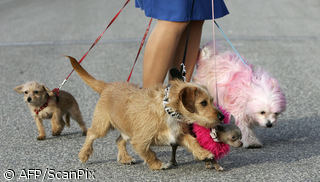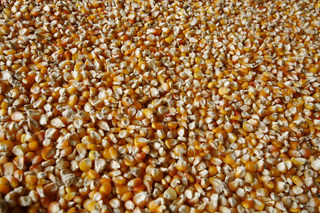Millions of Russian-speaking former citizens of the Soviet Union play a key part in the Russian economy by sending billions of rubles back to their own republics while they work in Russia
Published:
25 March 2003 y., Tuesday
Some of the workers build dachas in the Moscow region, while others drive trolleybuses in Moscow, sell vegetables in open markets or bring in the harvest in agricultural regions.
For the many families of these laborers, the paychecks are their key to survival. About a quarter of the households in Armenia and Azerbaijan are dependent on transfers from family members working in Russia, said Zhanna Zaionchkovskaya, head of the Academy of Sciences' Center for Migration Studies.
Families in other republics, including Georgia, Ukraine, Moldova and Tajikistan, also count on the money, but there are no reliable figures on the amounts involved, she said.
Nationalities Minister Vladimir Zorin said last year that 2 million Armenian and 1.5 million Azeri migrants are in Russia, while the next-largest groups are from Ukraine, Moldova and Tajikistan.
But most of the migrants are not registered in Russia, leaving them open to exploitation and extortion from employers and law-enforcement agencies.
Many of the workers are ethnic Russians unable to get citizenship since the government made it more difficult last year. Many have been living and working in the country for years. The law on foreigners, introduced in November, is intended to either legalize these workers or kick them out.
Šaltinis:
themoscowtimes.com
Copying, publishing, announcing any information from the News.lt portal without written permission of News.lt editorial office is prohibited.
The most popular articles
 As families across the United States struggle to keep their homes and their jobs, they are having to make all kinds of sacrifices - including giving up their pets.
more »
As families across the United States struggle to keep their homes and their jobs, they are having to make all kinds of sacrifices - including giving up their pets.
more »
 Unless you are lucky enough to be sitting in a park with a laptop, then if you are reading this you are probably in one of the 160 million buildings in the European Union.
more »
Unless you are lucky enough to be sitting in a park with a laptop, then if you are reading this you are probably in one of the 160 million buildings in the European Union.
more »
 Germany's decided to ban the cultivation - and sale - of maize with genetically modified organisms, also known as GMOs.
more »
Germany's decided to ban the cultivation - and sale - of maize with genetically modified organisms, also known as GMOs.
more »
 U.S president Barack Obama has lived up to his election night promise. A new First Dog will soon be gracing the lawns of the White House.
more »
U.S president Barack Obama has lived up to his election night promise. A new First Dog will soon be gracing the lawns of the White House.
more »
 Ninio - bull elephant to come to Poznan Zoo in Poland - is suspected of being gay and unlikely to be much help in creating any baby elephants at the zoo.
more »
Ninio - bull elephant to come to Poznan Zoo in Poland - is suspected of being gay and unlikely to be much help in creating any baby elephants at the zoo.
more »
 The New York town of Hempstead bought five Nigerian dwarf baby goats for removing weeds at a park.
more »
The New York town of Hempstead bought five Nigerian dwarf baby goats for removing weeds at a park.
more »
 Pensioner Bernhard Nermerich and his wife Michaela, love nothing more than preparing to celebrate Easter.
more »
Pensioner Bernhard Nermerich and his wife Michaela, love nothing more than preparing to celebrate Easter.
more »
 The impact of poverty on women and the work-life balance are just two issues the Women's Rights Committee had tackled over the last Parliamentary term.
more »
The impact of poverty on women and the work-life balance are just two issues the Women's Rights Committee had tackled over the last Parliamentary term.
more »
 No-one has bought it yet but this wedding dress is already proving to be a tourist attraction in Romania.
more »
No-one has bought it yet but this wedding dress is already proving to be a tourist attraction in Romania.
more »
 More than 100 Irish women leaders (and some men), from all walks of life, came together to exchange views on the economic crisis at a special one-day conference entitled "Challenges to Irish women in the current economic climate" held in Dublin on 4 April.
more »
More than 100 Irish women leaders (and some men), from all walks of life, came together to exchange views on the economic crisis at a special one-day conference entitled "Challenges to Irish women in the current economic climate" held in Dublin on 4 April.
more »